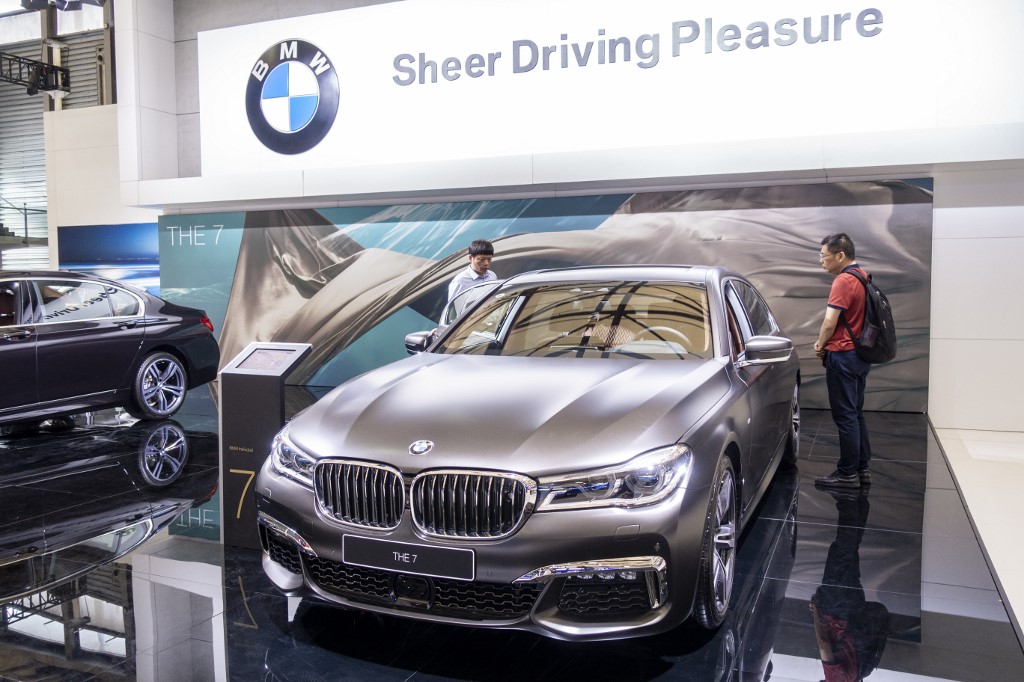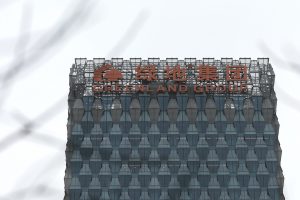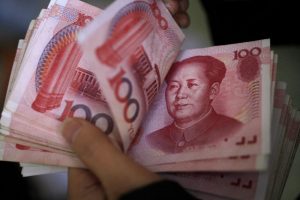(ATF) A Chinese court has accepted an application from a creditor for a reorganisation of Huachen Automotive Group Holdings – also known as the Brilliance Group – entering Liaoning province’s largest state-owned company into a bankruptcy process.
The court ruled that Brilliance Group met the criteria for bankruptcy because it “cannot pay off all its debts with its assets”, but it is still “worthwhile and possible” to save the group’s business through a reorganisation, the state-run Xinhua News Agency reported.
On Sunday, Brilliance Group’s Hong Kong-listed subsidiary Brilliance China, which owns a 50% stake in a BMW joint venture, said that GZ Tooling Group Automobile Technology, a creditor, filed an application to the court for reorganisation of the Brilliance Group.
Brilliance Group said in a statement on Monday that it had defaulted on debts totalling 6.5 billion yuan (US$990 million), and overdue interest of 144 million yuan (nearly $22 million). “Credit renewal could not be approved…Brilliance Group’s production and operations have been impacted by the debt defaults, resulting in the deterioration of its financial situation,” it said.
However, bondholders see the reorganisation as unfavourable, as they will likely end up getting little out of the process.
Just over three weeks before Brilliance Group announced it could not repay a 1-billion yuan (US$152 million) bond (17 Huaqi 05) that matured on October 23, it quietly transferred its entire 30.4% ownership in Brilliance China to Liaoning Xinrui Automotive Development, a wholly-owned subsidiary registered on September 22, according to data on Chinese business credit reporting platform Tianyancha.
Brilliance China is the group’s most valuable asset because it owns a 50% stake in a “cash cow” – the JV with BMW – though the ownership will be decreased to 25% in 2022.
“This means when Brilliance Group defaults, the creditors can only seek for the court to freeze its shareholding in Liaoning Xinrui, but not in Brilliance China,” Meng Xiangjuan, an analyst from SWS Research, said in a commentary. The court could not auction Brilliance China’s shares to repay the creditors.
Brilliance Group last month changed the registered address of its other listed subsidiary, Shanghai Shenhua Holdings, from Shanghai to its home province of Liaoning, so any claims must be filed in Liaoning, creating another barrier for creditors.
The court will designate a person at Brilliance Group to be responsible for processing and verifying the creditors’ claims, creating a reorganisation plan, and submitting the plan to a creditor meeting for voting. The creditors will be repaid according to the final court-approved reorganisation plan, the report said.
Established in the early 1990s, Brilliance Group employs 47,000 people and has more than 190 billion yuan ($28.9 billion) in total assets. It manufactures passenger cars and commercial vehicles under its own Zhonghua, Jinbei and Huasong brands, as well as joint venture marques Brilliance-BMW and Renault Brilliance.
The group has more than 160 subsidiaries and affiliates, including Hong Kong-listed Brilliance China and Xinchen China Power Holdings, and Shanghai-listed Jinbei Automobile, Shenhua Holdings.
Xinhua cited an official from Liaoning province’s SASAC (State-owned Assets Supervision and Administration Commission) as saying that Brilliance Group’s own brands had been incurring losses due to “long-time poor management” and it had long held a very high debt ratio. Since 2018, the provincial government had been trying to help Brilliance Group with its cash flow issues, but its debts had become untenable.
This year’s pandemic has added to the companies’ difficulties. The group had total debts of 52.4 billion yuan ($8 billion) and a debt-to-asset ratio of 110% by the middle of this year, and lost its ability to refinance. Creditor banks set up a debt committee in August, aiming to coordinate creditors, but a reconciliation could not be reached.
Subsidiaries jump at the news
An official from Brilliance Group told Xinhua that the reorganisation would affect only its own brands, not the JVs or Brilliance China.
Shenhua Holdings and Jinbei Automobile also said in separate statements earlier this week that they operate independently and do not expect their daily operations to be affected by the controlling shareholder’s possible reorganisation.
Brilliance China surged 6.3% in 15 minutes in trading on Friday, closing at HK$7.48 ($0.96), up 8.25% for the day. Xinchen Power soared 15.2% in 12 minutes, closing at HK$0.36 (US$0.05), up 7.46% for the day.
Shenhua Holdings rose 7.8% in two minutes, hit the daily price limit and stayed at the top until the close. Jinbei Automobile hit the daily cap earlier in the day in a move that seemed less related to the news.
Brilliance Group’s default invokes memories of a slew of defaults on 7.1 billion yuan ($1.1 billion) worth of bonds by Northeast Special Steel, also owned by Liaoning provincial government, in 2015. That marked the biggest bond-default case in China up to that point. The subsequent reorganisation of Northeast Special Steel involved deep haircuts for bondholders and banks.
The Liaoning government saw Northeast Special Steel’s reorganisation as a “success” because the suppliers were repaid, and the over 20,000 employees were able to keep their jobs.
Delinquent state firms rock the market
Brilliance Group has joined a growing number of delinquent state firms in a development that hit investor confidence and roiled China’s credit bond market. Brilliance Group’s bond default last month shocked the market because it is directly owned by the Liaoning provincial government, and was given AAA rating because of its government ties.
The group’s chairmen have also been appointed by the government. Yan Bingzhe, the chairman of Brilliance Group, was formerly deputy mayor of Shenyang city in Liaoning province. He was appointed last year to succeed Qi Yumin, formerly deputy mayor of another Liaoning city, Dalian, after Qi’s 10-year tenure ended.
Defaults by big name state-owned enterprises (SOEs) including Yongmei Holdings, Tianqi Lithium, Baoshang Bank, and Ziguang Group have rocked China’s markets.
More than 120 companies have cancelled bond issuances, while widening credit spreads have attracted the attention of regulators.
Song Tiange, an analyst at CIB Research, said that the market may have over-reacted in the short run. However, he said in the medium to longer term it would not be a surprise if SOEs with weak fudnamentals default. “As the government’s willingness to bail out SOEs becomes more uncertain and their capabilities to save the SOEs become weaker, we may see more defaults by weak SEOs,” he said.
“If an SOE has relatively good competitiveness and just faces short-term liquidity issues, it is necessary to rescue it. But if a company has long-standing burdens, undergoing a bankruptcy reorganisation is a more cost-effective and rational choice,” Song said.
The pandemic this year has hit local governments’ balance sheets badly, and their capacity to support the SOEs has weakened, he explained.
























